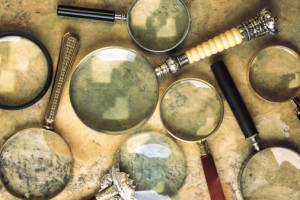 Having a dreary day? Blues gotcha’ by the, um, big toe? This’ll cheer you up… just read Ecclesiastes.
Having a dreary day? Blues gotcha’ by the, um, big toe? This’ll cheer you up… just read Ecclesiastes.
“Meaningless, meaningless!” says the Teacher. “Everything is meaningless!”
Actually, it may not help your mood very much, except to remind you that it could be worse. (If that doesn’t work, try the book of Job. I hear it’s a big hit at parties.)
Anyway, Ecclesiastes, which means “the Preacher” was either written by King Solomon or by someone else to represent him. It essentially describes the reflections of a man who got everything in life that someone would want to have.
He had wisdom.
He had no shortage of money.
He had any pleasure his wandering heart would ever wish for.
He had the praise and adoration of people.
The one thing he didn’t seem to find in all of that was any meaning to it all. At the end of the day, he concludes, rich and poor, righteous and unrighteous, wise men and fools all wind up dead. And all the things you spend so much energy working on are passed on to people who didn’t work for them.
“What a waste,” he moans. “Vanity!”
There are some more hopeful things sprinkled throughout the book, such as remembering your Creator in the days of your youth, fearing God and keeping His commandments, and God making all things beautiful in His time.
But the main theme throughout the book is that while we live in a broken, freaked out world, the places we naturally resort to in order to make our lives easier or better, or the things we spend our lifetimes laboring for, are in the end a complete waste.
“I’ve had it all,” he says. “And it didn’t do what it promised to do.”
We’ve learned better, right?
Oh well. Poor Sol. Maybe if we had a thousand wives and concubines to please, a nation to run (which means taxes to collect), and bills to pay on that scale, maybe we’d be moaning, too. But we’re New Testament believers, right? [click to continue…]






 God wants us to get it. We typically don’t.
God wants us to get it. We typically don’t.